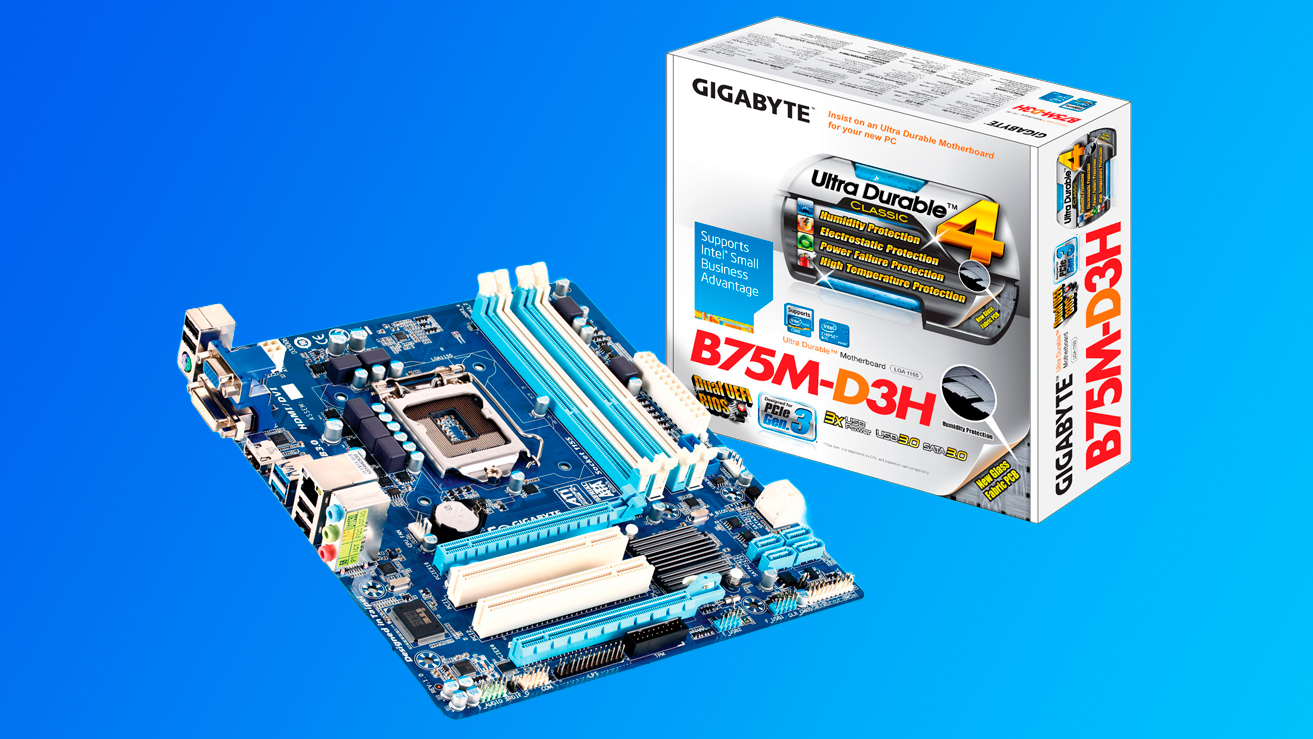Firmware updates for motherboards aim to fix bugs and occasionally introduce new features. However, Chinese netizen WhiteCamellia (via Uniko's Hardware) found that manufacturers often fail to promote these new features. Notably, Gigabyte has seemingly updated the 13-year-old B75M-D3H motherboard to support booting from M.2 NVMe SSDs, a previously unavailable functionality.
Introduced in 2012, the B75M-D3H is a motherboard featuring the B75 chipset, designed to support Intel's 2nd Generation (Sandy Bridge) and 3rd Generation (Ivy Bridge) Core processors. Clearly, the motherboard is beyond its end-of-life (EOL) status.
Ancient but not forgotten, Gigabyte issued a new firmware (F16f) for the B75M-D3H motherboard in 2024 to address the PKfail vulnerability discovered in the same year. The update is particularly noteworthy, as the last firmware update (F15) received by the B75M-D3H was in 2013, over ten years prior. The F16f firmware primarily addresses the PKfail issue. However, WhiteCamellia identified an additional functionality. An analysis of the F16f firmware using UEFITool reveals the inclusion of the NVMe DXE trifecta (Nvme, NvmeSmm, NVMEINT13), which is essential for booting from M.2 drives.
The B75M-D3H was not designed to accommodate M.2 SSDs. The motherboard features one SATA III and five SATA II connectors for storage, explaining its initial lack of support for booting from M.2 drives. Nonetheless, users can employ M.2 to PCIe adapters, allowing M.2 drives to connect with the motherboard via its expansion ports. That is precisely the approach WhiteCamellia took to use his Western Digital WD SN740 with the B75M-D3H motherboard.
The SN740 is a PCIe 4.0 x4 SSD that provides sequential read and write speeds of up to 2,000 MB/s. When installed on a slower interface, it logically results in reduced performance. On the B75M-D3H motherboard, the SN740 operates at PCIe 2.0 x4 speeds. This limitation is not due to the motherboard itself, as the B75M-D3H has a fully functional PCIe 3.0 x16 expansion slot. However, when paired with a Sandy Bridge processor, that slot operates at PCIe 2.0 speeds, which we suspect is the case with WhiteCamellia.
PCIe 2.0 storage speeds may seem underwhelming in modern times, considering PCIe 5.0 drives have been around for a couple of years now. However, the transition from SATA III to PCIe 2.0 is quite substantial and could revive aging systems to bring some snappiness to the operating system and everyday applications.
For quite some time, enthusiasts have modified firmware to enable unsupported processors or SSDs to function with newer motherboards. Regarding the B75M-D3H, it's unclear whether Gigabyte intentionally or unintentionally provided M.2 NVMe boot support. The PKfail vulnerability impacts numerous Intel platforms, covering the 60-series to 100-series chipsets, all of which received firmware updates from Gigabyte in September 2024. It's possible that this new firmware introduced similar functionality to other older motherboards aside from the B75M-D3H.
Follow Tom's Hardware on Google News to get our up-to-date news, analysis, and reviews in your feeds. Make sure to click the Follow button.

 6 months ago
68
6 months ago
68








 English (US) ·
English (US) ·